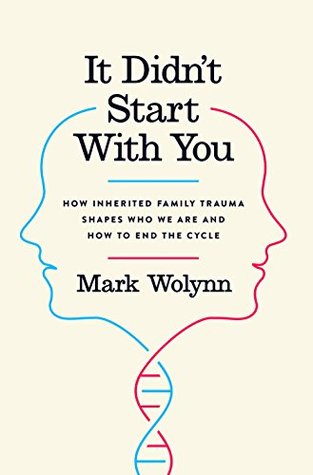More on this book
Community
Kindle Notes & Highlights
by
Mark Wolynn
Started reading
October 13, 2025
There are two important times when we’re unable to use words to describe our experience. The first is before the age of two or three, when the language centers of our brain have not yet reached full maturity. The second occurs during a traumatic episode, when our memory functions become suppressed and we can’t accurately process information.
When memory function is inhibited, emotionally significant information bypasses the frontal lobes and cannot be named or ordered through words or language, as Bessel van der Kolk describes. Without language, our experiences often go “undeclared,” and are more likely to be stored as fragments of memory, bodily sensations, images, and emotions. Language allows us to corral our experiences into story form.
Many of us unconsciously take on our parents’ pain.


